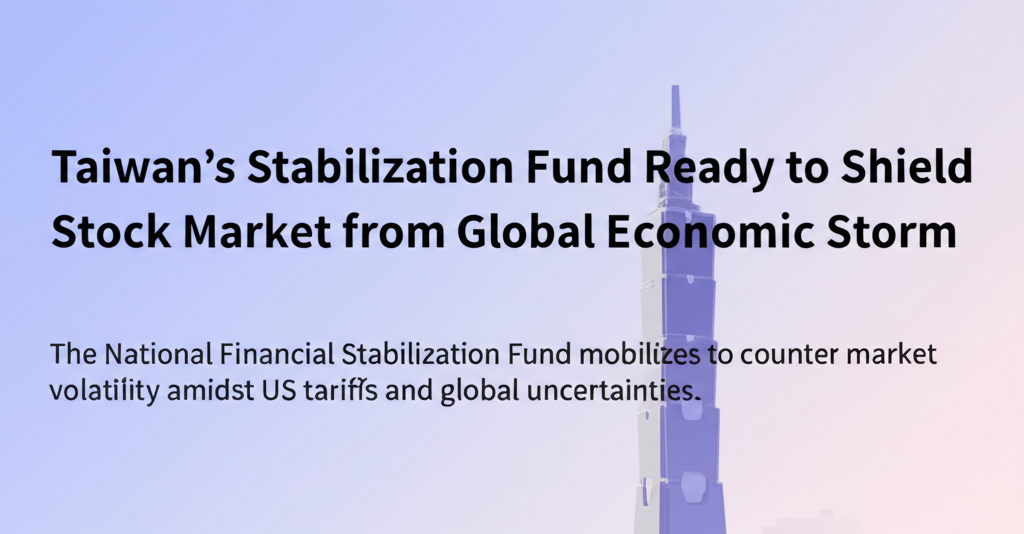Taiwan's Stabilization Fund Ready to Shield Stock Market from Global Economic Storm
The National Financial Stabilization Fund mobilizes to counter market volatility amidst US tariffs and global uncertainties.

Taipei, Taiwan – April 8th – In a move to bolster investor confidence and ease market volatility, Taiwan's National Financial Stabilization Fund has authorized an intervention in the local stock market. The decision, announced on Tuesday, comes in response to escalating concerns over global economic uncertainties, including the impact of tariffs imposed by the United States.
The committee overseeing the NT$500 billion (US$15.16 billion) fund, operating under the Executive Yuan, convened on Tuesday, advancing a meeting originally slated for next Monday. This proactive stance signals a firm commitment to stabilizing the market, with intervention potentially starting as early as Wednesday.
This marks the ninth intervention by the fund since its establishment in 2000. The urgency of the situation is underscored by the recent market performance. The Taiex, Taiwan Stock Exchange's benchmark weighted index, experienced a dramatic decline on Monday, plunging 2,065.87 points (9.7 percent) – the largest single-day drop in its history. This trend continued on Tuesday, with the index falling an additional 4.02 percent. Further volatility is anticipated, especially with the implementation of higher individualized tariffs, including a 32-percent tariff imposed by the Trump administration on Taiwan, set to take effect.
The National Financial Stabilization Fund has a proven track record of market support, having previously intervened in 2000 (twice), 2004, 2008, 2011, 2015, 2020 and 2022. The fund's largest intervention in terms of volume occurred in October 2000, deploying NT$120 billion to counter anxieties stemming from the dot-com bubble, escalating oil prices, and the suspension of construction on Taiwan's No. 4 nuclear plant.
The longest intervention, lasting 275 days, took place in July 2022, utilizing a comparatively smaller NT$54.51 billion, amidst growing market unease over rising U.S. inflation figures.
Other Versions
El Fondo de Estabilización de Taiwán, listo para proteger a la Bolsa de la tormenta económica mundial
Le fonds de stabilisation de Taïwan est prêt à protéger le marché boursier de la tempête économique mondiale
Dana Stabilisasi Taiwan Siap Melindungi Pasar Saham dari Badai Ekonomi Global
Il Fondo di stabilizzazione di Taiwan pronto a proteggere il mercato azionario dalla tempesta economica globale
台湾の安定化基金、世界経済の嵐から株式市場を守る準備完了
글로벌 경제 폭풍으로부터 주식 시장을 보호할 준비가 된 대만의 안정화 기금
Handa ang Stabilization Fund ng Taiwan na Protektahan ang Pamilihan ng Sahig mula sa Global Economic Storm
Стабилизационный фонд Тайваня готов защитить фондовый рынок от глобального экономического шторма
กองทุนรักษาเสถียรภาพของไต้หวันพร้อมปกป้องตลาดหุ้นจากพายุเศรษฐกิจโลก
Quỹ Bình ổn của Đài Loan Sẵn sàng Bảo vệ Thị trường Chứng khoán khỏi Cơn Bão Kinh tế Toàn cầu
